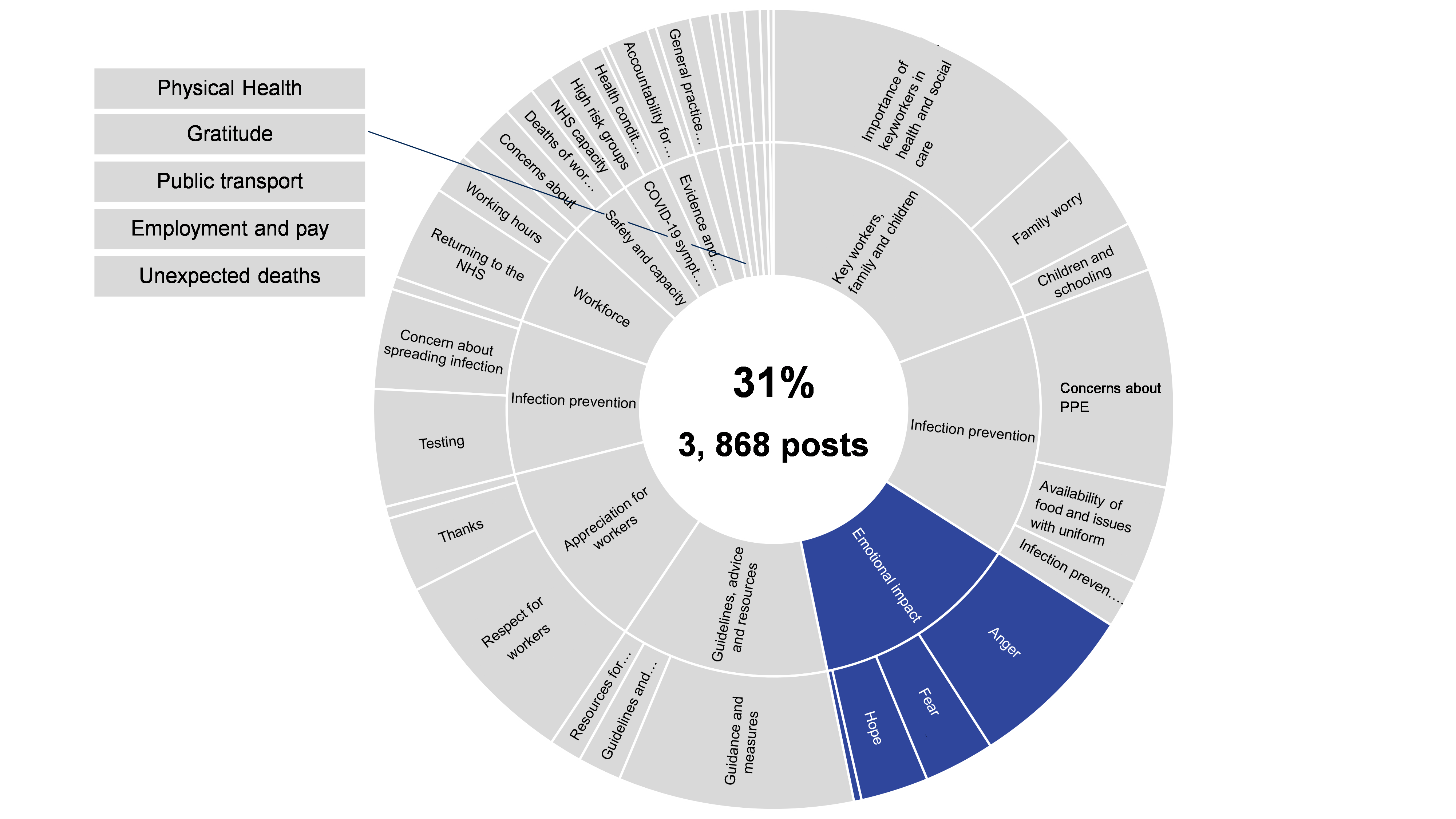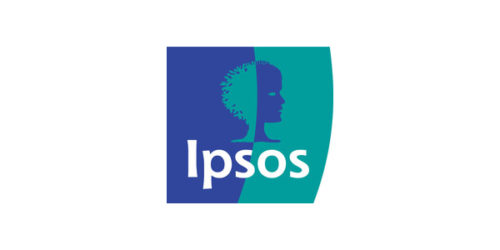latest
Social media reveals challenges on the frontline
(24 September 2020) While school children painted rainbows and people sang from balconies or clapped for health and care workers on their doorsteps, many professionals on the frontline of the pandemic turned to social media to express frustration about Personal Protective Equipment (PPE) and COVID-19 testing and anxiety about how to safeguard their own families from the Coronavirus.
These findings from social media analysis conducted by Ipsos MORI for Future Care Capital show the significant pressure experienced by health and social care professionals in the first months of the UK pandemic. Ipsos MORI used a combination of machine-led analysis, manual coding, statistical modelling and qualitative investigation to analyse some 19,145 social media posts from health and social care professionals and their representative bodies between 1 February to 31 June.
The analysis offers insight into the experiences of health and social care professionals at a time when many were reportedly forbidden from speaking out publicly about the challenges faced.
Family worries
Overall, almost one in three social media posts from health and social care professionals or representative bodies (29%) emphasised the importance of these key workers. Around one in ten (9%) social media posts analysed were related to health and social care professionals’ concerns about exposing their family to the virus or being separated from them. A small proportion of posts analysed (4%) were related to children and schooling. Taken together, these topics make up 34% of the social media conversation from or about health and social care professionals. (see Figure 1.)
Emotional impact
Social media posts expressing the emotional impact of the pandemic were common, with 3 in 10 posts (31%) relating to this subject. The majority expressed feelings of anger (19%), with fewer expressing feelings of hope (8%) and fear (6%). A smaller proportion of posts (4%) mentioned the mental strain of working through the pandemic, with professionals and representative bodies sharing advice about how to maintain balance and wellbeing. (See Figure 3.)
Public appreciation
- Social media data also highlights significant volumes of respect and appreciation for the health and care workforce. Over one fifth (22%) of social media posts from and about health and social care professionals were focused on appreciation for workers, expressing respect (16%), thanks (6%) and mentioning fundraising and donations (3%). (See Figure 2.)
- We can see that health and social care professionals expressed concern about both professional and personal circumstances during the pandemic, offering an insight into the extent to which these challenges intersect. It also suggests that there is significant value in allowing health and social care professionals to post online because it enables identification of key learnings at an aggregate and anonymised level that can be applied to bring about improvements in future.
Annemarie Naylor MBE, FCC’s Director of Policy and Strategy said:
“The language used by politicians during the first wave of the pandemic conveyed a ‘wartime’ situation, complete with an invisible attacker who must be ‘fought’ against. But, the conversations amongst health and care professionals make plain that, whilst heroic in their efforts and widely applauded, they themselves often did not feel valued or safeguarded. The ‘battle’ narrative woven by key figures earlier this year may or may not prove helpful in the final analysis. It should, however, give rise to important questions about the value we ascribe to health and care professionals who, in other ‘wartime’ circumstances, might be paid, kitted out, respected and their families treated differently. As the public health emergency continues, this situation must be remedied.
”Some of the issues that seemed resolved as the Government moved to lift the national lockdown back in the Summer have the potential to serve as a focus for concern, once again, as we approach the Winter. New challenges are also widely anticipated – ranging from growing disquiet about public health restrictions to the economic impacts of the pandemic, and what that means for the size and geography of any ‘second wave’ that professionals might yet be asked to confront. Our report highlights their reactions to some of those challenges as well as pointing toward what could be deemed ‘silver linings’ that could yet flow from an incredibly challenging time for health and care professionals.”
Steven Ginnis, Research Director at Ipsos MORI said:
“Social media data provides a valuable 360 perspective on the experience of health and care professionals during the pandemic. For example, a large proportion of posts from health and social care workers described the challenges of supporting and protecting their families and children during the pandemic as they had to contend with balancing their professional responsibilities with their personal responsibilities. The research also points to the value of social media in times of crisis – including a quick means of sharing advice and guidance about best practice, and championing the value of health and social care staff.”
Communicating Public Health: Discussions about and among health and social care professionals is the third report in a series by Future Care Capital and is available for download from https://futurecarecapital.org.uk. The fourth and final report, to be released next week, will focus on the impact of the pandemic on the physical and mental health of social media users.
Figure 1
Figure 2
Figure 3


